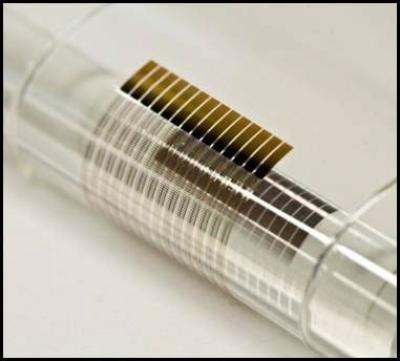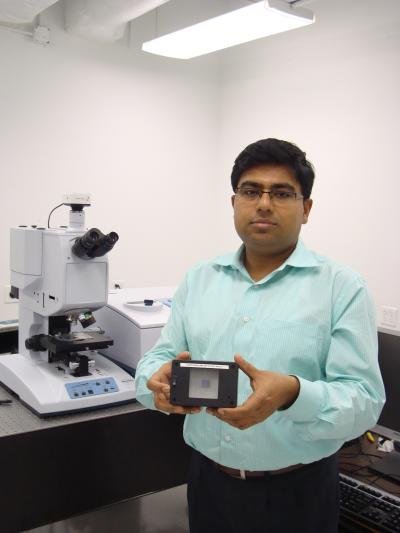Nanoprinting research creates efficient, flexible solar cells
While harnessing the energy of sunlight is not particularly difficult, we still rely on the electricity grid because we haven’t yet developed a way to use sunshine efficiently and on a large scale.
But a team of researchers from the University of Illinois at Urbana-Champaign and the University of Central Florida in Orlando may be one step closer to tapping into the full potential of solar cells. The team found a way to create large sheets of nanotextured silicon micro-cell arrays that hold the promise of making solar cells lightweight, more efficient, bendable and easy to mass produce.

The team used a light-trapping scheme based on a nanoimprinting technique where a polymeric stamp mechanically emboss the nano-scale pattern onto the solar cell without involving further complex lithographic steps. This approach has led to the flexibility researchers have been searching for, making the design ideal for mass manufacturing, according to UCF assistant professor Debashis Chanda, lead researcher of the study.
The study’s findings are the subject of the November cover story of the journal Advanced Energy Materials.

Previously, scientists had suggested designs that showed greater absorption rates of sunlight, but how efficiently that sunlight was converted into electrical energy was unclear, Debashis said. This study demonstrates that the light-trapping scheme offers higher electrical efficiency in a lightweight, flexible module.
The team believes this technology could someday lead to solar-powered homes fuelled by cells that are reliable and provide stored energy for hours without interruption.
2025–26 GenCost report released for public consultation
Solar PV and onshore wind still form the basis for Australia's cheapest electricity...
ARENA invests $21m in three EV charging projects
Funded under the Driving the Nation Program, the projects will focus on developing pathways and...
New facility to boost homegrown solar PV manufacturing
A major solar module manufacturing facility is due to be developed in the NSW Hunter Valley,...




